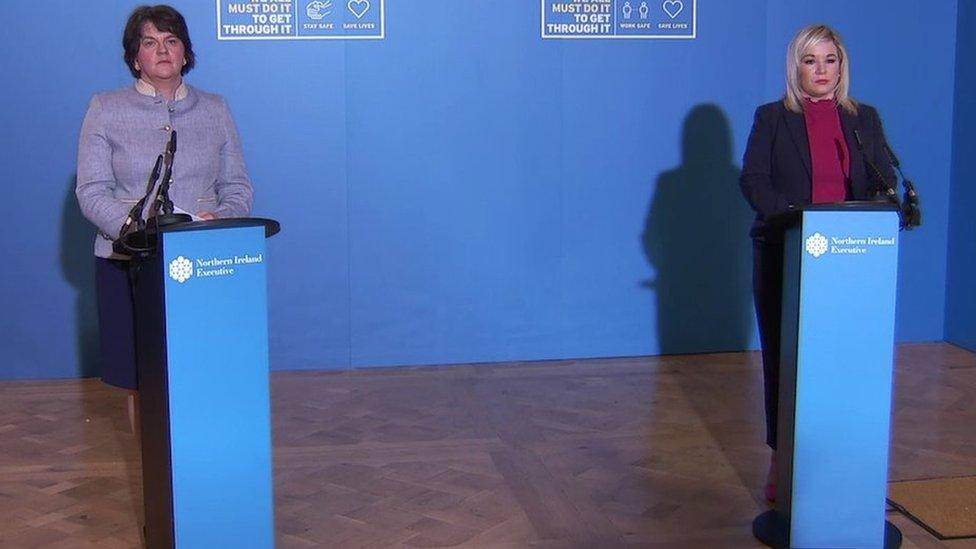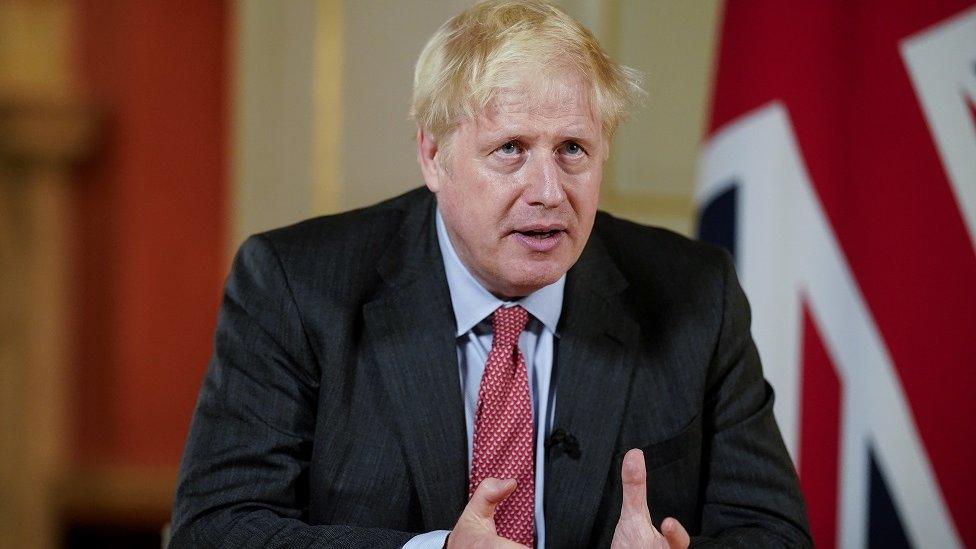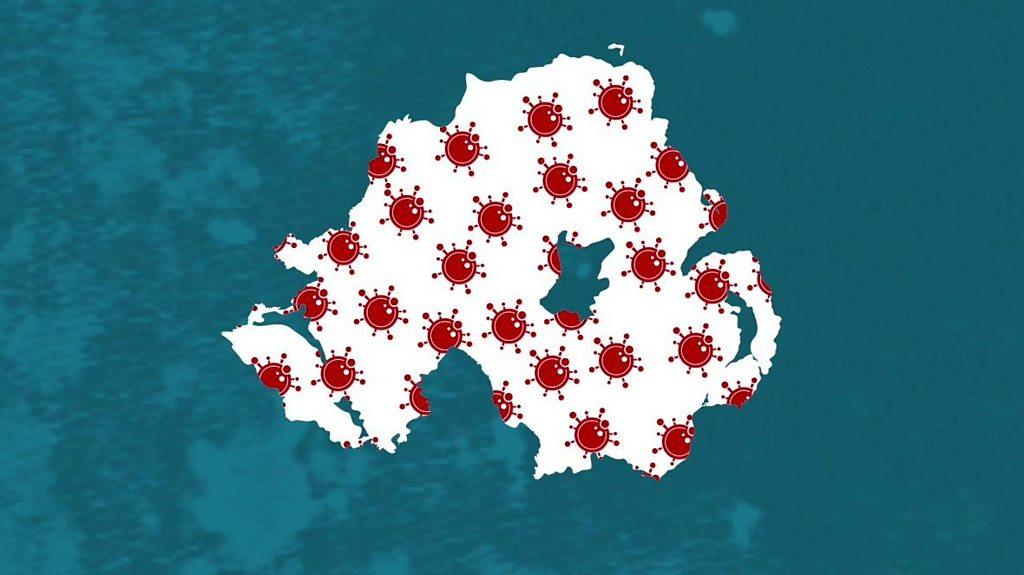Coronavirus: Covid restrictions a wake-up call, says Arlene Foster
- Published
- comments

Ms O'Neill said taking no further action would "risk a worsening situation by mid-October onwards"
Tougher Covid-19 restrictions being imposed in NI do not represent a second lockdown but should act as a wake-up call, First Minister Arlene Foster has said.
In a live televised address, Mrs Foster and Deputy First Minister Michelle O'Neill called for a "big push" to curb the rising number of Covid-19 cases.
Ms O'Neill said ministers needed to "sound the alarm bells loud and clear".
She called for "continued patience" and for people to "go back to basics".
The ministers' message, which set out why the coronavirus rules were being tightened in NI, was broadcast on BBC One on Tuesday evening.
It followed a statement by UK Prime Minister Boris Johnson, who warned of tougher measures if people did not stick to the new rules.
He said common sense was the "single greatest weapon" against coronavirus, and the UK's "collective health" depends on people's individual behaviour.
'No kindness'
Covid-19 restrictions were extended to all of NI from 18:00 BST.
It specifies there will be no mixing of households indoors with the following exceptions:
Bubbling with one other household
A limit of six people from no more than two households, excluding children aged 12 or under, can gather in a private garden.
Caring responsibilities including childcare
Essential maintenance
Supported living arrangements
Visits required for legal or medical purposes
Marriage or civil partnerships where one partner is terminally ill
Mrs Foster said NI was now reporting the highest number of cases since the early stages of the pandemic, with a 50% rise in hospital in-patients over the past week.
"We need to act," she said. "But I want to reassure you, that despite all the headlines, this is not a second lockdown.
"This is a wake-up call. A reminder that we are not out of the woods."
BBC News NI's Jordan Kenny explains the latest Covid-19 restrictions
The first minister added that people from Northern Ireland were "naturally hospitable", however she warned it was "no kindness to host or attend large gatherings in each other's homes at the moment"
"We speak specifically about the house parties inside and outside," she said.
"The only winner in the long term from such scenes will be Covid-19."

'Absolutely nothing new'
Analysis by Gareth Gordon, BBC News NI political correspondent
We heard absolutely nothing new at all, we could have written the speeches beforehand.
But I think it was the way in which they were delivered, this presidential style, starting with Boris Johnson, followed by the first minister and deputy first minister.
We are being conditioned into being told that the next few months are going to be tough and we're really going to have to knuckle down.
They know that there will be people who will fight against this, that there is fatigue out there, it was mentioned in both their speeches, but these people are being told 'don't listen to any outside influences, this is what you must do.'

Ms O'Neill said taking no further action would "risk a worsening situation by mid-October onwards".
"Your health and the health of your loved ones is in your hands," she said.
"Maintain social distancing; Good hygiene; Wash your hands often; Work from home if you can; Wear a face covering in shops and on public transport; Download the StopCovid app; Only share information which is from reliable sources."
The Northern Ireland Executive is to meet on Thursday to consider further measures.

'Last-ditch attempt'

This joint televised address was one last-ditch attempt to encourage the public to come onboard and follow these restrictions.
Everyone in Northern Ireland can make a difference here, there is a window in the next two to three weeks to help turn this around.
It is clear the executive's attempts to introduce local lockdown measures in certain postcodes did not work.
The message was muddied, there was a lack of clarity and a lot of confusion.
The executive clearly now feel if restrictions need to be introduced then they need to be applied across Northern Ireland.
Many of the measures will require the public to use their common sense and do their part to help limit the spread of the virus.
I suppose sitting on your shoulder is that angel saying if you don't do this we could be facing another lockdown and nobody wants that again.

On Tuesday, the Department of Health announced 75 new cases of Covid-19 in Northern Ireland - down from 125 on Monday, with no further deaths linked to the virus.
In the last seven days, 963 people have tested positive for Covid-19 in Northern Ireland.
Thirty-six people are currently in hospital with the virus, five of whom are in intensive care.
In the Republic of Ireland, no further coronavirus-related deaths and 334 new cases of Covid-19 have been reported.
It brings the total number of confirmed cases to 33,444. with the death toll remaining at 1,792.
- Published23 September 2020

- Published22 September 2020
